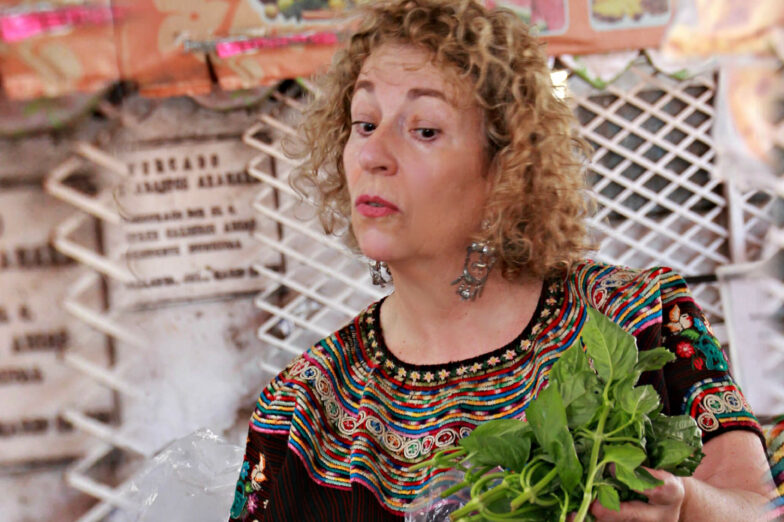Turmeric is a rhizome related to ginger. It is sold in powdered form and as a fresh root in Asian food markets and some grocery stores with an extensive selection of roots. Both forms can be used for cooking and for making tea.
Anti-Inflammatory
Combined with ginger root for flavor in a tea, its anti-inflammatory benefits occur when used over time. The active ingredient, curcumin, is its primary anti-inflammatory substance. Turmeric and curcumin are also available in capsules, as a powder, and as a liquid extract.
Turmeric and its anti-inflammatory chemical curcumin require black pepper or piperine, a constituent of black pepper responsible for its pungency, to be absorbed (bioavailable) by the body (Hewling & Kalman, 2017).
Protects the Brain and the Liver
Turmeric root is protective for the brain and may prevent Alzheimer’s and Parkinson’s disease (Mishra & Palanivelu, 2008). It reduces headache pain and supports liver, gallbladder, and digestive health by stimulating bile flow.
Contraindications
There are some contraindications for turmeric use. People at risk of kidney stones or other oxalate-related conditions should avoid large amounts of turmeric. When taking turmeric, use it with food and with probiotics. to reduce oxalate levels, use it for 4 weeks, and then alternate with another natural anti-inflammatory.
Pregnant women should not use it without a doctor’s approval. In rare cases, extended use can cause stomach upset or heartburn. When certain medications like digoxin or phenytoin are used, limit Black pepper to less than 1 teaspoon a day. You can receive the benefits of turmeric by drinking golden milk, or in chai tea, a perfect brain-boosting drink.
Turmeric-Rooibus Brain Chai (Caffeine-Free)
Recipe by Marlene Bremner
Ingredients
- 5 cups water
- 2-inch piece of fresh ginger, coarsely chopped
- 2-inch piece of fresh turmeric, coarsely chopped
- 1 tablespoon cardamom pods
- 1 teaspoon cloves
- ½ teaspoon black peppercorns
- 1 cinnamon stick
- 1–2 tablespoons Rooibus (red bush) tea, to taste
- 1 cup milk (coconut, almond, or rice, etc.)
- 1 teaspoon vanilla extract
- 1 teaspoon extra-virgin coconut oil
- Sweetener of choice (honey, stevia, or agave)
Directions
- Place the water, ginger, and turmeric in a medium-size pot and bring to a boil. Reduce heat to medium and simmer for 5 minutes. Add the cardamom pods, cloves, black peppercorns, and cinnamon and simmer for another 15 minutes.
- Strain the liquid into a large bowl, reserving the spices and roots to use for another batch of chai. Add the Rooibus tea to the bowl and cover, steeping for 5–10 minutes.
- Strain the tea back into the pot. Add the milk, vanilla, and coconut oil and gently heat over medium-low heat for 5 minutes, stirring to combine. Serve in individual cups and sweeten to taste using honey, stevia, or agave nectar.
You can learn more about natural medicine for preventing and treating diabetes type 2 and Alzheimer’s in my CE online course, Nutrition & Integrative Medicine for Diabetes, Cognitive Decline & Alzheimer’s Disease, and in my books, Nutrition Essentials for Mental Health and Natural Woman: Herbal Remedies for Radiant Health at Every Age and Stage of Life.
References
Hewlings SJ, Kalman DS. Curcumin: A Review of Its Effects on Human Health. Foods. 2017;6(10):92. Published 2017 Oct 22. doi:10.3390/foods6100092
Mishra S, Palanivelu K. The effect of curcumin (turmeric) on Alzheimer’s disease: An overview. Ann Indian Acad Neurol. 2008;11(1):13‐19. doi:10.4103/0972-2327.40220
- Touch Therapy for Trauma Recovery - April 19, 2024
- The Soul of Basil - March 12, 2024
- A Comprehensive Guide to Natural Hypothyroidism Treatment - November 17, 2023

Are You Ready to Advance Your Career?
If you want to advance your career in integrative medicine, explore my courses and certifications.












